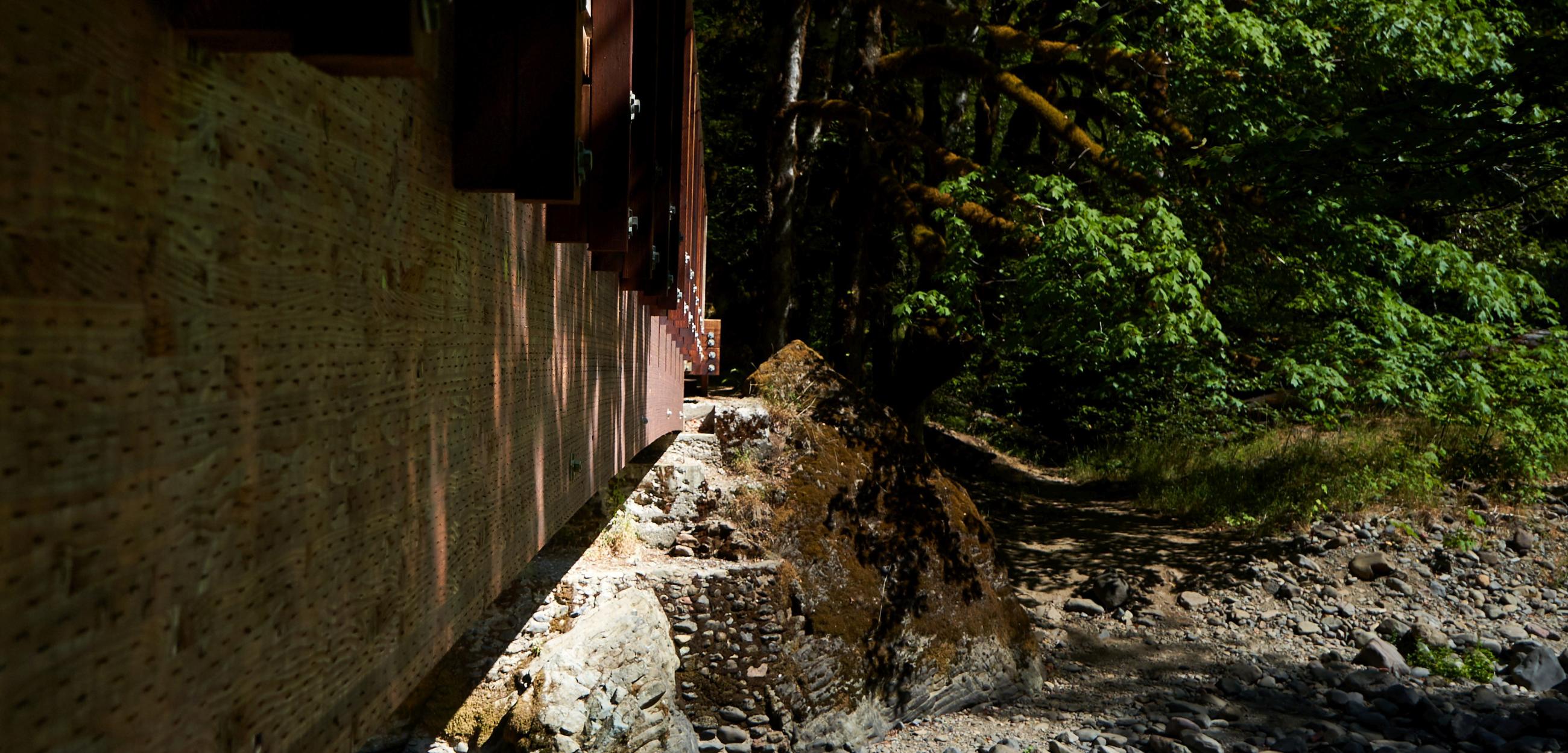The Environmental Performance of Treated Wood Research Cooperative (EPTW) was established to explore the potential impacts treated wood chemicals and processes have on the environment. Our job is to develop data related to the performance of treated wood and improve the ability of the industry to use and dispose of treated wood in a safe and environmentally conscious way. We as a coop work specifically to improve environmental interactions between treated wood and aquatic applications.
The following objectives outline our current research goals:
- Develop fundamental data on preservative migration from wood
- Develop standardized accelerated methodologies for assessing treated wood risks
- Work cooperatively to develop and improve models to predict the risk of using treated wood in various applications
- Identify improved methods for reducing the potential for migration
- Evaluate the environmental impacts and identify methods for reuse, recycling and/ or disposal of preserved wood that is removed from service
- Deliver educational outreach programs on the proper use of treated wood in relation to the Best Management Practices (BMP’s)
Our Advisory Committee, comprised of representatives from each member, meets annually to review the progress that’s been made in the past year and to make recommendations on future research. Committee members are involved in research projects through advising, supplying materials, and other key contributions necessary to achieving coop goals.
Responsibilities of OSU
-
With advising from our cooperators, OSU will provide overall leadership and coordination of EPTW activities such functions will include:
- Identify research needs and set priorities
- Plan and implement research projects
- Analyze, interpret, and report the results of EPTW studies
- Serve as liaison to various organizations and individuals with expertise in treated wood technology and other pertinent interests.
- Provide leadership for the EPTW Steering Committee
- Schedule and moderate periodic meetings of the EPTW Steering Committee
- Administer the financial, professional and material resources available to the EPTW program in a cost-effective manner. Annually, identify to the cooperators the base cost of maintaining research capacity to support the EPTW and a proposed budget for any plan of work.
- Ensure that all EPTW activities comply with legal, regulatory, and administrative requirements
-
Provide a forum for an exchange of information
- Serve as a focal point of information exchange on the environmental performance of treated wood.
- Publish and distribute the results of EPTW-sponsored scientific experiments in collaboration with interested participants in an appropriate manner.
- Produce an annual report summarizing the accomplishments of the EPTW program
-
Provide scientific expertise in support of EPTW objectives
- Provide sound statistical and experimental methods for EPTW studies.
- Synthesize technical input from project teams at each stage of project development and implementation, including design, execution, analysis/inference, and interpretation.
- Ensure a high degree of quality control and uniformity in the installation, measurement and statistical analysis of EPTW studies
- Provide technical guidance in the implementation of research findings into practice.
- Provide documentation to improve public understanding of issues related to the use of treated wood.
Responsibilities of Cooperators
- Serve in an active advisory capacity on the steering committee for items such as program direction and emphasis, level of support, compatibility with other research programs, resolution of conflicts and other general issues
- Provide technical suggestions for pursuing EPTW objectives.
- Provide logistical and other in-kind support (such as chemicals, analytical services or materials, access to study sites, disposal of toxic materials, and other needed assistance) for installing and evaluating EPTW studies. Such assistance will be negotiated on a study-by- study basis so that a firm commitment by all parties involved is assured. If necessary, supplemental agreements or contracts will be prepared which specify the type and amount of assistance offered.
- Provide financial support in the form of contributions. All annual cooperator contributions are to be equal and in an amount set to cover a base cost of maintaining research capacity at OSU plus a variable amount to support the annual plan of research of the EPTW. The total expected contribution will be the sum of the two components and not less than $10,000 per year. The total annual cost of the EPTW will be equally proportioned between all cooperators. The cooperators may increase the amount of future contributions at the annual meeting of the EPTW Steering Committee. All annual payments shall be subject to an indirect cost rate of 15%.
- Maintain the integrity of research plot installations where necessary until the studies have been completed.
- Permit the use of study sites for visits, tours and demonstration areas which are directed and arranged by OSU (Subject to the permission and sole discretion of the cooperator)
- One payment will be made annually by the cooperator. OSU will issue an invoice on March 1 each year. Payments must include the invoice number, and will be mailed within 120 days of invoice receipt
Membership
Cooperators may be any firm or public agency interested in supporting the goals and research agenda of the EPTW Research Cooperative and who annually contribute the apportioned share of the costs of the EPTW They will also be expected to contribute in-kind support as needed. Cooperators have representation on Steering Committee, access to all EPTW information, and intellectual property advantages such as review of information for patenting and favored royalty status (favored royalty status means that OSU will not license to other parties in terms more favorable than to cooperators).
